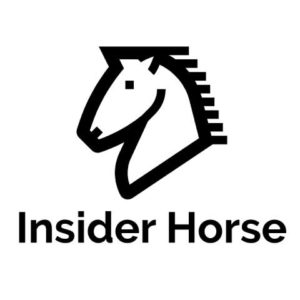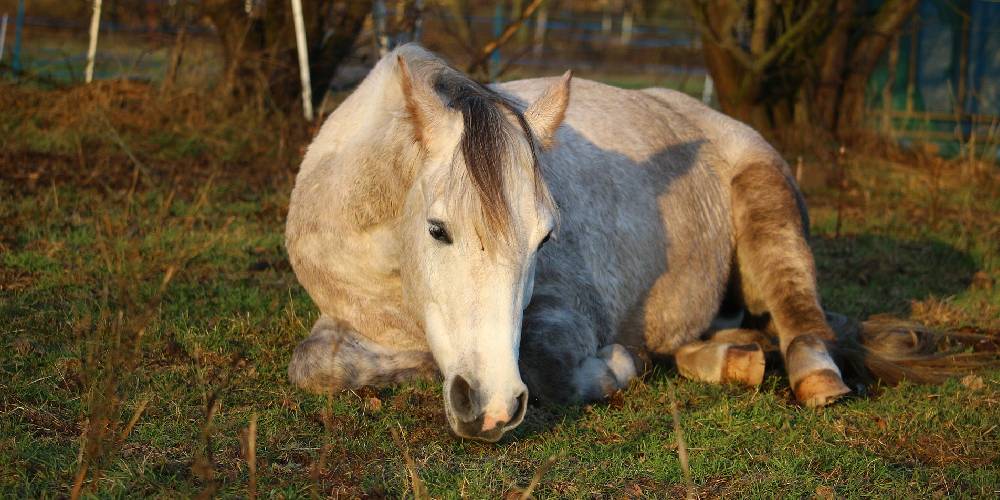Has your horse been acting off recently? Are they showing a loss in appetite, attitude changes, or just an overall look of dullness and poor health? Consider looking further into the possibility that your horse may be suffering from gastric ulcers.
Gastric ulcers are a fairly common issue seen in horses and ponies of all ages, breeds, and sizes. Ulcers affect the lining of the horse’s stomach, and in most cases, they are quite painful and uncomfortable. Some of the most common causes for ulcers in horses include environmental stress, physical stress, or an improperly balanced feeding plan. If you notice that your horse has poor body condition, their attitude is constantly changing, they show signs of weight loss, or have a reluctance to work, ulcers could definitely be the culprit!
In this article, I will cover:
- What are gastric ulcers?
- The most common causes of gastric ulcers
- Symptoms of gastric ulcers
- Treating gastric ulcers in horses
- Preventing your horse from getting ulcers
What are Gastric Ulcers?
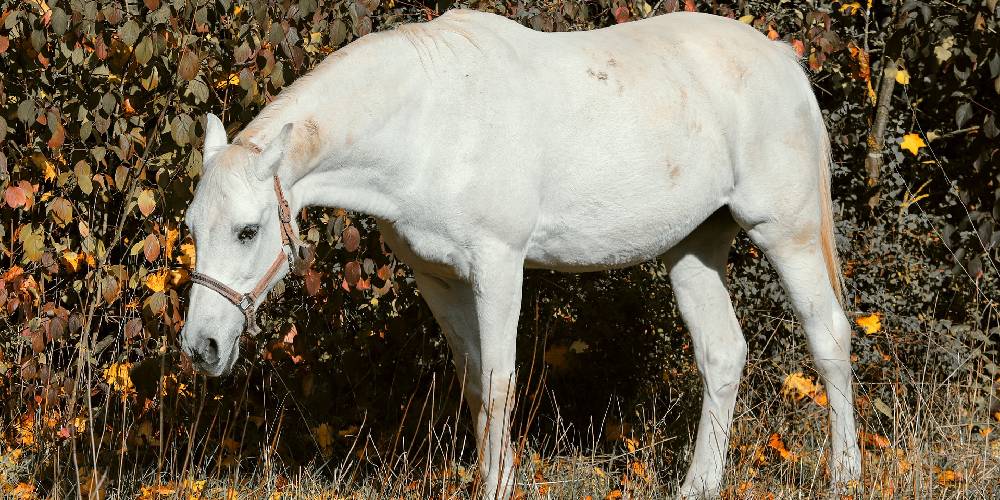
Gastric ulcers are painful lesions found in the horse’s gastro-intestinal system, with the stomach being the most commonly affected place. These ulcers can be caused by a huge number of things ranging from their social environment, their exercise load, to even their diet and medication needs!
Ulcers form when the protective lining on the horse’s stomach walls is disrupted or eaten away. This allows the horse’s stomach acid to then start to eat away at the walls of the stomach, thus causing large painful sores.
The area of the stomach most commonly affected by ulcers is the upper squamous region. The other region of the stomach, the lower glandular region, is less commonly affected by ulcers because this area of the stomach produces mucus and and bicarbonate which help in protecting the stomach lining from excess acid. The squamous region lacks the natural defenses the glandular region holds and therefore this part of the stomach sees around 80% of all ulcer cases.
The Most Common Causes of Gastric Ulcers
There are several different things that can be causing your horse to suffer from gastric ulcers. Some of the causes come from what your horse is eating, some causes come from the environment your horse is in, and some can even come from the work that your horse is doing. All factors should be addressed in order to narrow down what the likely cause for your horse’s ulcers is.
Environmental Causes
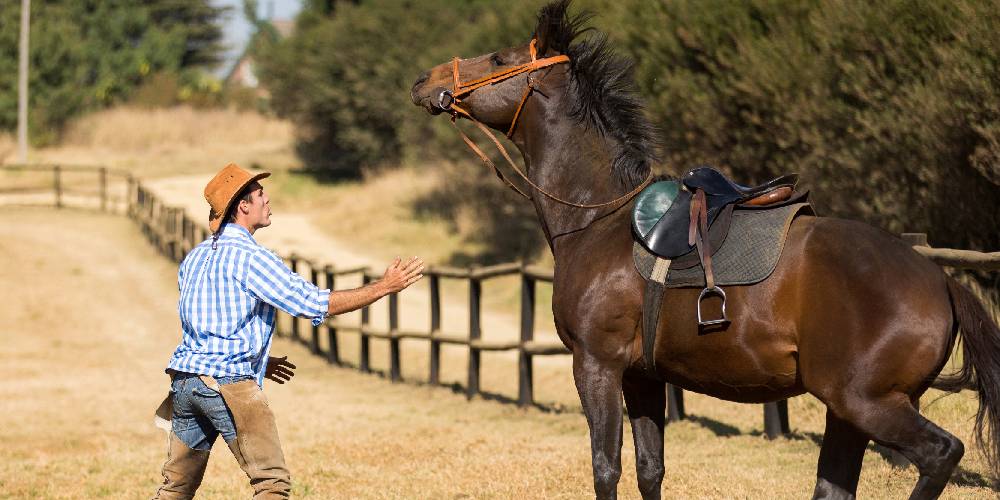
Some of the most common causes of ulcers in horses that can be tied back to your horse’s environment are these:
- Constant exposure to ‘scary’ things
This can cause your horse’s stress levels to increase. Stress levels and the presence of ulcers are often directly coorelated. If your horse is constantly on edge or worried, the constant stress can impact their health.
- Having a horse alone
Horses are herd animals. Lacking the presence of other horses or even other farm animals can make them uneasy, therefore causing their stress levels to rise.
- A constantly changing environment
Horses like to feel safe and comfortable. If your horse is showing symptoms of gastric ulcers after moving them to a new barn, taking them to shows, or bringing new horses to your facility, the cause of the appearance of ulcers is likely directly related to the stress of a new or changing environment.
- A stressful social environment
Sometimes when horses are all turned out together, one horse will be ruled out as the bottom of the herd. If this is the case, the constant picking on and driving away that this horse may face can cause stress levels to increase and therefore cause ulcers to form.
As you can see, stress is a huge factor in your horse’s overall health. If symptoms for gastric ulcers arise and any of these environmental triggers have become a factor in your horse’s life, one of the first steps in addressing the ulcer issue would be to eliminate or at least reduce the stress factor from their environment if possible.
Diet-Related Causes
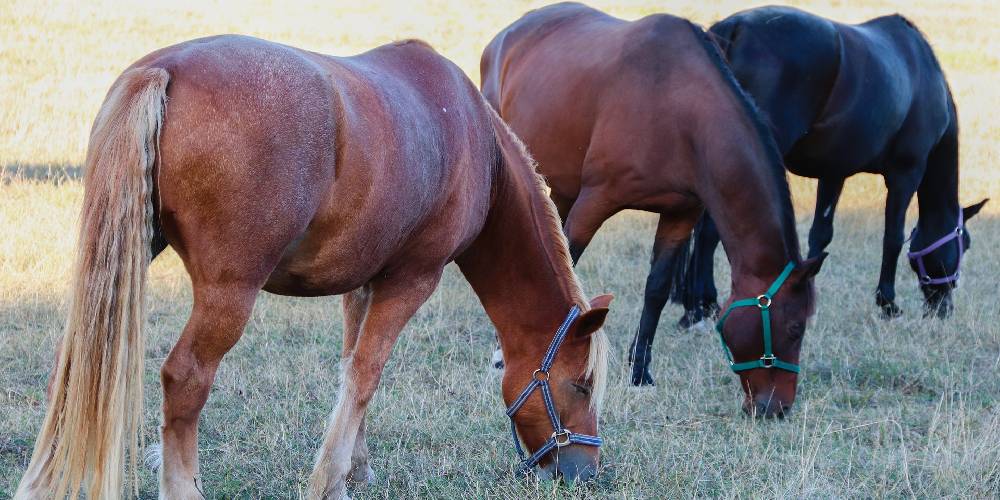
Sometimes, what you are putting into your horse’s stomach each and every day can greatly impact their gut health. Some of the most common diet-related causes for ulcers are the following:
- Intermittent access to water
Horses need to drink around 10 gallons of water per day! Not having a constant access to fresh, clean drinking water can have a direct negative impact on their overall health and is often linked to the appearance of ulcers.
- High grain intake
Horses who have a diet that largely consists of grain often are seen with more ulcer issues than those who have a more diverse diet. I personally feed my horses mostly hay with a medium portion of grain during their ‘lunch time.’ This way, they are eating primarily a more natural feed, but they are still getting the extra nutrients that grain offers. High grain diets are known to cause the production of volatile fatty acids in the horse’s gastro-intestinal tract which is known to aid in the appearance of ulcers.
- High starch diets
Keeping an eye on your horse’s starch intake is very important! Not only is it a known cause for ulcers, but high starch levels also increase the risk for chronic colic, laminitis, insulin resistance, and even muscle issues. Check the starch levels in your horse’s grain! Often times horse owners will feed grain to their horses not realizing the starch levels are too high. The horse’s digestive system is not able to properly digest and process excess amounts of starch, therefore causing a plethora of health issues.
- Straw feeding
Some horse owners feed their horse’s straw. This feed source, however, is known to cause a number of health issues if not fed properly. Straw is a poor nutrient source as it lacks much of the nutrients that horse’s require day to day. The high fiber levels in straw mean it is harder for the horse’s to digest and get the mineral content they need from their feed. Feeding straw commonly can be linked to colic caused by impaction, as well as gastric ulcers.
If your horse’s diet consists of high starch levels, straw, limited access to water, and a higher grain amount, it is quite possible that what your horse is eating (or not eating) is directly linked to their ulcer issue.
Exercise-Related Causes
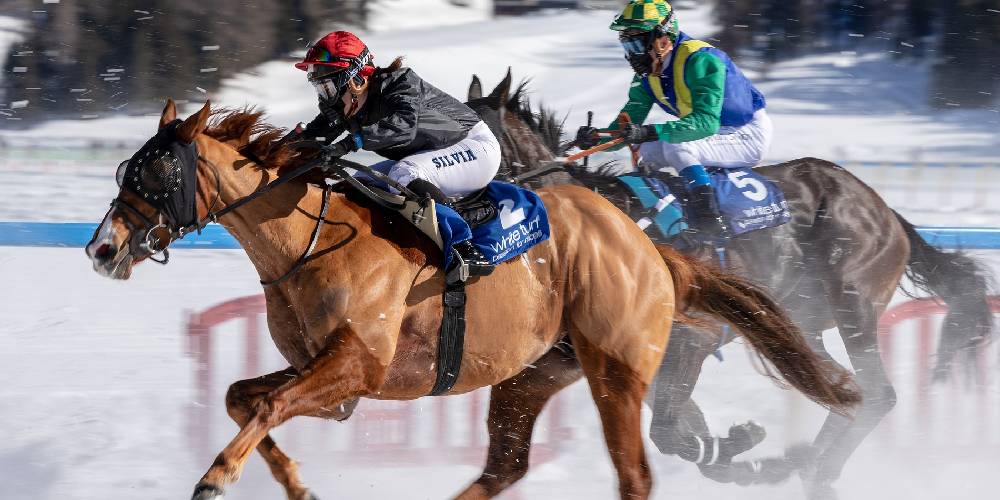
Believe it or not, but sometimes the job that your horse is performing or the work they are asked to do can impact their gut health. Some of the most common exercise-related causes for gastric ulcers in horses are the following:
- High-intensity work
It has been found that horses who have a much more physically-exherting job (such as jumping, racing, eventing, cross country, endurance, barrel racing, etc.) have a higher chance of developing gastric ulcers than a horse with a more low-intensity work requirement (trail riding, recreational riding, etc.). The reason for this links back to stress. Whether the stress is related to physical requirements or a horse’s environment, both can cause the appearance of this painful condition
- Extended exhertion times
Horses who have a work load that is exherting and extended out over a period of time are under physical stress for longer. Researchers found that horses under exercise have increased stomach acid production and the circulation to their gastro-intestinal is reduced. This over an extended amount of time means increased stomach acid in the gastro-intestinal tract which directly coorelates to the appearance of gastric ulcers.
Great physical stress, as you can see, has a direct coorelation to the appearance of gastric ulcers in horses. Keeping an eye on your horse’s work load and making sure it is balanced can greatly reduce the chances of your horse getting ulcers.
Other Causes
There are many more causes for gastric ulcers outside of the horse’s diet, work load, or environment. Here are a few more examples of other causes for gastric ulcers:
- Consistent use of Bute, Banamine, or NSAIDs
Horses who consistantly require anti-inflammatory medication or other medications for other health issues are often much more prone to developing ulcers. The constant addition to these medications to the digestive system can irritate the stomach enough to the point where ulcers can form. Limiting how often these medications are used will be the best thing for your horse’s gut health in the long run.
Removing or better managing some or all of the ulcer causes from your horse’s environment and diet will do a great deal when it comes to improving their overall health and happiness.
Symptoms of Gastric Ulcers
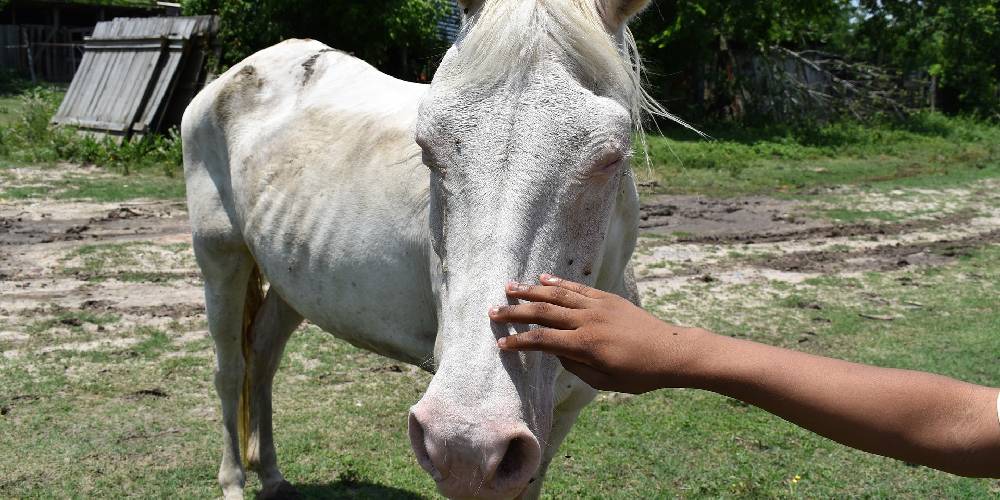
There are several different symptoms of gastric ulcers you need to be aware of. Calling a vet out for a gastroscopy might be a good idea if your horse is displaying one or more of the following symptoms:
- Poor Appetite
If your horse isn’t really big on eating like they used to be, or they have started to show signs of being ‘picky’ about certain foods, they might be trying to tell you they are uncomfortable!
- Weight Loss
Sometimes, poor appetite and weight loss can go hand in hand. When a horse has a big painful sore in their stomach, they may not want to eat because of the stomach pain. The lack of nutrients entering their body is a big reason why they may be losing weight!
Also, sometimes ulcers can mess with the absorption of nutrients from food! Because of this, your horse might show signs of weight loss and their body condition might start to look increasingly poor even if their appetite hasn’t appeared to change!
- Chronic Diarrhea
Does your horse consistently have loose stool and you can’t seem to find the cause? Sometimes, ulcers can be a large part of the reason why your pony is constantly having goopy poops. Digestion just doesn’t always work the way it’s supposed to when ulcers come into the picture.
- Poor Coat
One of the first things I look for to help me determine if a horse is healthy or not is a shiny or dull coat. If your horse used to have a nice, shiny coat but for some reason (other than them growing a winter coat) it has begun to dull out and lose its luster, ulcers can be the cause.
- Bruxism/Teeth Grinding
Bruxism is essentially the clenching or grinding of teeth. If you notice increased tightness in your horse’s jaw or that they are grinding their teeth, you might want to get your pony checked out!
- Aggression or Nervousness
Random changes in attitude can be linked back to something causing your horse discomfort. If your horse is suffering from gastric ulcers, they may act out in nervous or aggressive displays because they don’t know how to handle this new pain they’re experiencing.
- Increase in Stable Vices/Bad Habits
Sometimes, when horses have ulcers, it can put them through increased levels of stress and discomfort. These horses will then occasionally turn to stable vices or bad habits as a way to expell or release this stress. Some examples of these behaviors could include:
Cribbing, Pacing, Weaving, Wood Chewing, Pawing, etc.
- Colic
Colic might seem to be an obvious symptom for gastric ulcers. Colic is the response horses often give when they experience some form of internal discomfort or pain. If your horse is having reccuring colic symptoms and the colic won’t seem to go away, getting a gastroscopy done can help with a diagnosis on this whether ulcers are the culprit for the chronic colic or not.
- Poor Performance
Is your horse burning out faster when riding? Or maybe you feel like they lack the spirit and drive they once displayed when working? Ulcers are known to deplete a horse’s performance level. If you had a large, uncomfortable sore in your stomach would you perform the same as you would without it?
- Sensitivity in the Girth Area
If your horse has become increasingly ‘cinchy’ or ‘girth sour’ then maybe look into getting an exam done to rule out if gastric ulcers are the reason why. Sometimes when horses get ulcers, they can become increasingly sensitive in the girth area and may act out when it comes time to tighten the girth.
- Excessive Recumbancy
Recumbancy basically means leaning, resting, or lying down. A lot of horses who have developed ulcers may begin to lie down and rest more frequently because of their increasing discomfort. If your horse is lying down or resting in excessive amounts, look further into the possibility that they may in fact have gastric ulcers!
Treating Gastric Ulcers
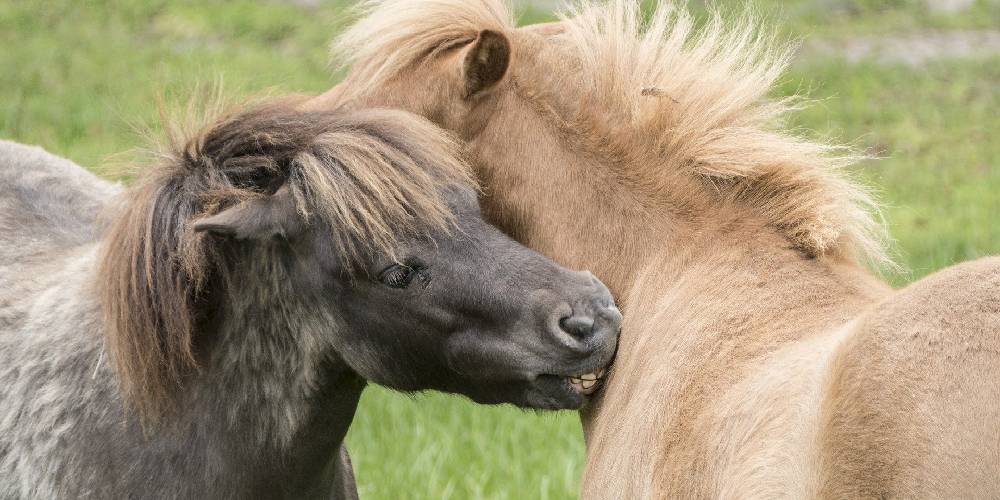
There are several ways to go about treating gastric ulcers in horses. These are some of the best ways to go about taking care of this issue:
Review the list of potential ulcer causes and eliminate them as best you can
If you suspect your horse has ulcers or if you got the confirmation that your horse has ulcers, one of the first steps I suggest taking is eliminating what caused your horse’s ulcers in the first place!
Review the list of potential ulcer causes and see which of them, if any, apply to your horse’s life. If you realize that your horse, for example, has intermittent access to water and eats a high-starch diet, increasing their water access and reducing the starch in their diet can be a great start when it comes to combatting their gastric ulcer issue!
Administering Omeprazole
Omeprazole is a medication you can administer to your horse orally (through their mouth) to help combat their ulcer problem. It has been shown to take care of some horse’s ulcers in under a month!
This medication can be prescribed by your veterinarian or purchased over-the-counter. A high rated oral paste containing Omeprazole you can get for your horse is:
Merial UlcerGard: This is a very highly rated omeprazole oral paste used to combat and prevent ulcers in horses. With a 4.8 star rating on Amazon, a huge majority of the people who have used this form of omeprazole to treat and prevent their horse’s ulcers are extremely satisfied with the quality and effectiveness of this product.
Though this product can be quite expensive, sometimes your veterinarian will suggest you use this product over a certain amount of time to help increase its effectiveness. If this is the case, purchasing the larger package of this product might be necessary.
UlcerGard Supplements
Many horse owners enjoy the ease at which supplements can be applied to their horse’s diet. I personally prefer to feed a horse a supplement rather than struggle day in and day out trying to get them to accept their oral pastes. Some highly rated supplements I found that have been proven to help with ulcers include:
MagnaGard: This supplement can be purchased in either a 6 pound bag or a 20 pound bucket. This product stops ulcer progression in its tracks and helps to protect the stomach lining by adding a protective buffer over it, which gives the stomach wall some much needed time to heal.
Not only does MagnaGard do this, but it also contains other valuable vitamins and minerals that help with bettering your horse’s overall gut health and calming your horse down.
MagnaGard Plus: This supplement, like the MagnaGard supplement above, comes in both the 6 pound and 20 pound sizes. This product stops ulcer progression in its tracks and helps to protect the stomach lining by adding a protective buffer over it, which gives the stomach wall some much needed time to heal.
Like the product above, this supplement does more than just treat ulcers. MagnaGard Plus also contains other valuable vitamins and minerals that help with bettering your horse’s overall gut health and calming your horse down. This supplement, unlike the other MagnaGard product, also contains Omega-3s on top of the other added vitamins and minerals which help get your horse that shiny, smooth coat.
Listen to your Veterinarian
Though the above options have worked wonders for many other horses, your veterinarian likely knows what is the best plan of action as far as your horse’s situation is concerned.
If any of the above products sounded like a good fit for your horse and their situation, talk about introducing it into your horse’s diet with your veterinarian and get their opinion.
Often times, a good veterinarian can be a great help in coming up with a safe treatment plan to get your horse back in good health.
Preventing Gastric Ulcers
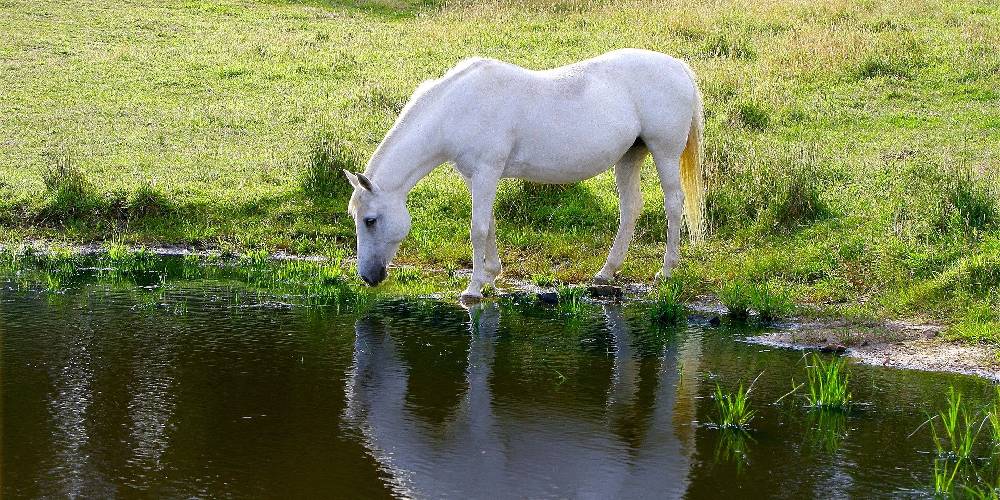
Following these tips will greatly reduce the chances that your horse will develop ulcers in the future, or prevent past ulcers from making a comeback. These are the best things you can do to prevent your horse from developing or re-developing gastric ulcers:
- Make sure your horse has a consistent supply of water!
Horses need to drink around 10 gallons of water per day, with some breeds drinking even more! Ensuring that they have water whenever they may need it is a great way to combat and prevent ulcers! The water helps to dilute some of that stomach acid in their bellies which significantly aids in relieving ulcer pain or preventing ulcers appearing in the first place
If your horse isn’t very good at staying hydrated, adding some salt or electrolytes to their grain can help with this. A mineral lick or salt lick in their stall or turnout can also encourage them to increase their water intake
- Make sure your horse has food in their system!
Spreading your horse’s feed out throughout the day is not only great when it comes to preventing ulcers, colic, and other gastro-intestinal issues, but it is also what is most natural to them!
In the wild, horses graze for up to 16 hours per day! Having consistent food in their bellies is super helpful in diluting the acid in their stomachs and giving it something to break down other than the horse’s stomach wall.
If your horse currently only gets 2 meals a day, try to add a third meal in there if possible to help with keeping something in their gut. This will definitely help you to combat your ulcer problem and prevent them from coming back in the future.
- Don’t overwork your horse!
Keeping your horse active is 100% okay! Just knowing when too much is too much will help to keep your horse’s gut healthy and their stress levels down!
- Reduce stress factors as much as possible!
I understand that we don’t live in a perfect stress-free world, so completely eliminating stress factors from your horse’s life and environment can be close to impossible. Reducing stress factors however may be a little more feasible.
Try increasing your horse’s turnout time, reducing your horse’s work load (if it’s extensive), try introducing a turnout buddy, etc.
